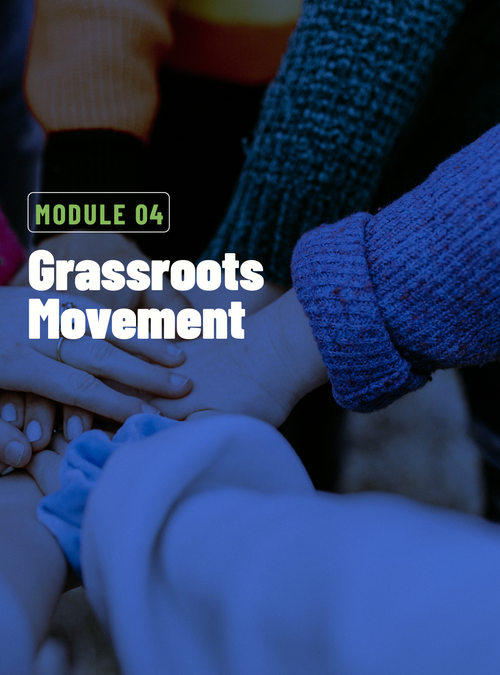Our Curriculum
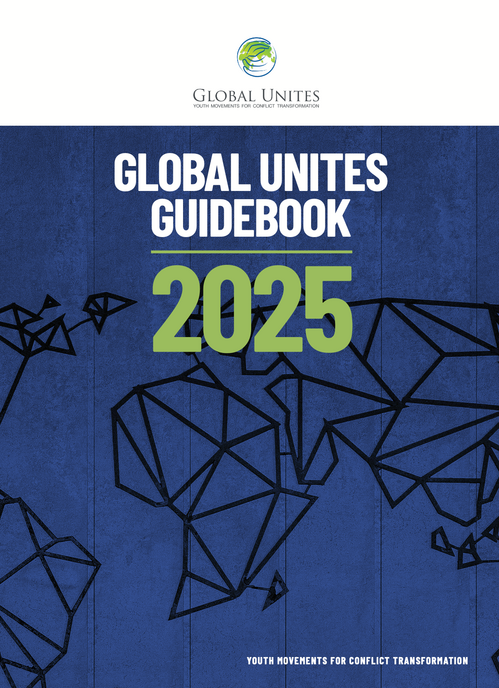
Global Unites has created a curriculum that is designed to inspire, connect, and equip youth. Our curriculum gives youth the knowledge they need to be agents of sustainable impact. The goal of our curriculum to give youth tools to promote hope, non-violence, and reconciliation in their own communities. Each module covers a different topic with topics ranging from Conflict Transformation to the Environment to Youth Leadership and Character.
Here is the introduction to the first module to give you an idea of what a typical module might look like ~
Here is the introduction to the first module to give you an idea of what a typical module might look like ~
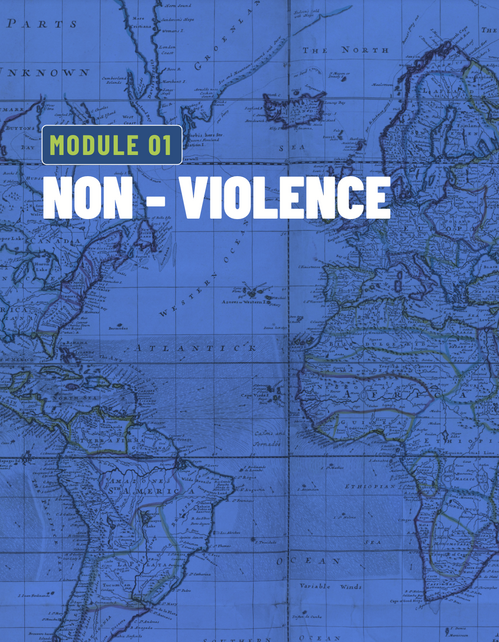
Youth Leadership and Character
The future of our world depends on a new generation of leaders—individuals who exercise self-leadership and possess the strength to inspire and serve others. Across nations and cultures, youth stand at the crossroads of transformation, but true leadership begins with character. It requires discipline, integrity, and a deep commitment to moral principles. Each young leader must build their foundation on these core values, for only then can they serve as an authentic role models and effect meaningful change.
A society craving strong moral leadership demands that we start shaping leaders early—
leaders who are driven not by personal ambition, fame, or power, but by a genuine desire
to serve the greater good. Many current leadership models prioritize self-interest, legacy, or political gain, often at the expense of integrity and long-term societal well-being. But real leaders of tomorrow are those who put service above self, who are willing to toil for justice, equity, and sustainable progress—leaders who understand that true influence is found in humility, sacrifice, and relentless dedication to their ideals.
How can a generation dream of transforming nations and the world if their foundation is
flawed? How can they aspire to create justice and healing when they emulate shortcuts and undermine their core values? Leadership rooted in integrity recognizes that the ends do not justify the means. A leader of character understands that any compromise taints both their integrity and their effectiveness.
At Global Unites, we believe that change is driven by leaders who live their values and are accountable to those they serve. Without a strong moral compass and genuine authenticity, even the most inspiring rhetoric falls flat—all words, no trust. True leadership inspires others to follow wholeheartedly, sacrifice willingly, and work tirelessly toward a shared vision of justice and progress. Because when leaders adopt a selfless mindset and focus on collective good, there’s nothing truly impossible to achieve.
The future of our world depends on a new generation of leaders—individuals who exercise self-leadership and possess the strength to inspire and serve others. Across nations and cultures, youth stand at the crossroads of transformation, but true leadership begins with character. It requires discipline, integrity, and a deep commitment to moral principles. Each young leader must build their foundation on these core values, for only then can they serve as an authentic role models and effect meaningful change.
A society craving strong moral leadership demands that we start shaping leaders early—
leaders who are driven not by personal ambition, fame, or power, but by a genuine desire
to serve the greater good. Many current leadership models prioritize self-interest, legacy, or political gain, often at the expense of integrity and long-term societal well-being. But real leaders of tomorrow are those who put service above self, who are willing to toil for justice, equity, and sustainable progress—leaders who understand that true influence is found in humility, sacrifice, and relentless dedication to their ideals.
How can a generation dream of transforming nations and the world if their foundation is
flawed? How can they aspire to create justice and healing when they emulate shortcuts and undermine their core values? Leadership rooted in integrity recognizes that the ends do not justify the means. A leader of character understands that any compromise taints both their integrity and their effectiveness.
At Global Unites, we believe that change is driven by leaders who live their values and are accountable to those they serve. Without a strong moral compass and genuine authenticity, even the most inspiring rhetoric falls flat—all words, no trust. True leadership inspires others to follow wholeheartedly, sacrifice willingly, and work tirelessly toward a shared vision of justice and progress. Because when leaders adopt a selfless mindset and focus on collective good, there’s nothing truly impossible to achieve.
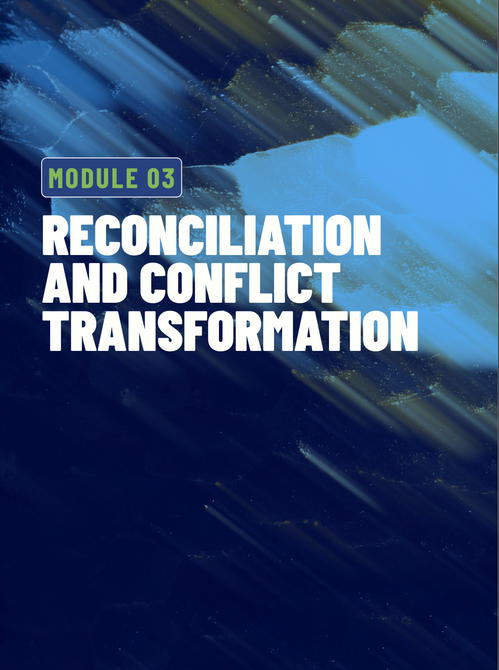
Grassroots Movements
Our nations face a pressing need for reform on multiple fronts. Too many communities remain oppressed, trapped under the weight of direct or structural injustice. In many countries, there is an urgent call for transformation—in political culture, in the fight against rampant corruption, in building an inclusive national identity, in strengthening overburdened judicial and law enforcement systems, and in addressing deep economic and social challenges.
Such widespread change cannot be achieved through policy and government action alone. Citizens must play their part—and, at times, even lead the charge. An informed, engaged, and equipped citizenry is essential to the transformation of society. In some instances, government and policymakers may resist necessary change, making it even more crucial for people at the grassroots level to step forward.
As Václav Havel once said, “Vision is not enough; it must be combined with venture. It is not enough to stare up the steps—we must step up the stairs.” Grassroots movements hold the power to generate bottom-up solutions that give ordinary citizens a sense of ownership, mobilize communities around critical issues, and spark the public discourse necessary to drive lasting progress.
Educating the next generation of leaders to understand the need for reform, creating awareness on the road blocks and political deadlocks to overcome, empowering them with the knowledge of how grassroots movement can indeed create the impetus for organic and lasting change are core components of this program.
Our nations face a pressing need for reform on multiple fronts. Too many communities remain oppressed, trapped under the weight of direct or structural injustice. In many countries, there is an urgent call for transformation—in political culture, in the fight against rampant corruption, in building an inclusive national identity, in strengthening overburdened judicial and law enforcement systems, and in addressing deep economic and social challenges.
Such widespread change cannot be achieved through policy and government action alone. Citizens must play their part—and, at times, even lead the charge. An informed, engaged, and equipped citizenry is essential to the transformation of society. In some instances, government and policymakers may resist necessary change, making it even more crucial for people at the grassroots level to step forward.
As Václav Havel once said, “Vision is not enough; it must be combined with venture. It is not enough to stare up the steps—we must step up the stairs.” Grassroots movements hold the power to generate bottom-up solutions that give ordinary citizens a sense of ownership, mobilize communities around critical issues, and spark the public discourse necessary to drive lasting progress.
Educating the next generation of leaders to understand the need for reform, creating awareness on the road blocks and political deadlocks to overcome, empowering them with the knowledge of how grassroots movement can indeed create the impetus for organic and lasting change are core components of this program.
Non - Violence
Global Unites has chosen non-violence as a foundational pillar of our youth movement
because we believe that true and lasting peace cannot be achieved through the cycles
of aggression that have historically torn communities apart. Drawing inspiration from the legacies of transformative leaders like Gandhi, Martin Luther King Jr., and Nelson Mandela, our commitment to non-violence is both a strategic and moral choice. It empowers young people to lead with courage, dignity, and discipline, even in the face of profound injustice. By rejecting violence as a tool for change, we defy the narrative that might makes right, and instead model a more powerful, hopeful alternative—one deeply rooted in empathy, dialogue, and reconciliation.
Our focus on non-violence is paramount because it embodies the future we strive for: a world where dignity is upheld, humanity is restored, and young leaders emerge as bridge-builders in divided societies. This critical stance against violence is the foundation of our first training module. If we fail to proactively counteract messages promoting violence, we create no space for justice, healing, negotiation, or common ground. Instead, we perpetuate cycles of hate, revenge, and more violence, crippling the economic potential of nations and entrenching suffering for generations to come. We must stand firm and ensure that the defense of a non- violent solution remains unbroken.
Global Unites has chosen non-violence as a foundational pillar of our youth movement
because we believe that true and lasting peace cannot be achieved through the cycles
of aggression that have historically torn communities apart. Drawing inspiration from the legacies of transformative leaders like Gandhi, Martin Luther King Jr., and Nelson Mandela, our commitment to non-violence is both a strategic and moral choice. It empowers young people to lead with courage, dignity, and discipline, even in the face of profound injustice. By rejecting violence as a tool for change, we defy the narrative that might makes right, and instead model a more powerful, hopeful alternative—one deeply rooted in empathy, dialogue, and reconciliation.
Our focus on non-violence is paramount because it embodies the future we strive for: a world where dignity is upheld, humanity is restored, and young leaders emerge as bridge-builders in divided societies. This critical stance against violence is the foundation of our first training module. If we fail to proactively counteract messages promoting violence, we create no space for justice, healing, negotiation, or common ground. Instead, we perpetuate cycles of hate, revenge, and more violence, crippling the economic potential of nations and entrenching suffering for generations to come. We must stand firm and ensure that the defense of a non- violent solution remains unbroken.
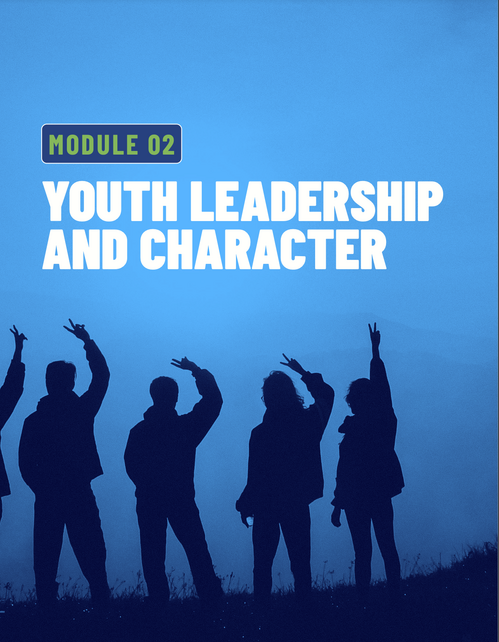
Reconciliation and Conflict Transformation
Almost a decade after the end of a devastating conflict, many nations around the world continue to grapple with the lingering divisions, mistrust, and unresolved grievances that threaten to reignite violence and conflict. Whether in post-war societies, regions fractured by ethnic, religious, or political differences, the path to genuine peace remains complex and challenging.
For youth activists and peacebuilders committed to fostering sustainable change, understanding reconciliation and conflict transformation is essential. These processes are the foundation for healing wounds, rebuilding trust, and fostering inclusive societies where diversity is celebrated and justice prevails.
Reconciliation goes beyond mere peace agreements—it involves deep, authentic efforts to address the root causes of conflict, acknowledge past injustices, and create pathways for unity and coexistence.
Conflict transformation emphasizes reshaping relationships, social structures, and narratives to prevent relapse into violence, ensuring peace is resilient and enduring.
Achieving true reconciliation requires the active engagement of a new generation—one that is equipped with knowledge, skills, and a passionate commitment to justice and peace. It’s important to recognize that this is a long-term journey, often spanning generations, requiring patience, perseverance, and collective effort.
Empowering young leaders globally to understand, champion, and facilitate reconciliation and conflict transformation is crucial. When youth take ownership of this process, they become catalysts for positive change—building societies that are not only peaceful but also just, inclusive, and resilient. Their efforts can ignite transformation that lasts, making a profound long-term impact on their nations and the world.
Join the movement towards reconciliation. Learn, act, and lead for a future grounded in peace and reconciliation.
Almost a decade after the end of a devastating conflict, many nations around the world continue to grapple with the lingering divisions, mistrust, and unresolved grievances that threaten to reignite violence and conflict. Whether in post-war societies, regions fractured by ethnic, religious, or political differences, the path to genuine peace remains complex and challenging.
For youth activists and peacebuilders committed to fostering sustainable change, understanding reconciliation and conflict transformation is essential. These processes are the foundation for healing wounds, rebuilding trust, and fostering inclusive societies where diversity is celebrated and justice prevails.
Reconciliation goes beyond mere peace agreements—it involves deep, authentic efforts to address the root causes of conflict, acknowledge past injustices, and create pathways for unity and coexistence.
Conflict transformation emphasizes reshaping relationships, social structures, and narratives to prevent relapse into violence, ensuring peace is resilient and enduring.
Achieving true reconciliation requires the active engagement of a new generation—one that is equipped with knowledge, skills, and a passionate commitment to justice and peace. It’s important to recognize that this is a long-term journey, often spanning generations, requiring patience, perseverance, and collective effort.
Empowering young leaders globally to understand, champion, and facilitate reconciliation and conflict transformation is crucial. When youth take ownership of this process, they become catalysts for positive change—building societies that are not only peaceful but also just, inclusive, and resilient. Their efforts can ignite transformation that lasts, making a profound long-term impact on their nations and the world.
Join the movement towards reconciliation. Learn, act, and lead for a future grounded in peace and reconciliation.
